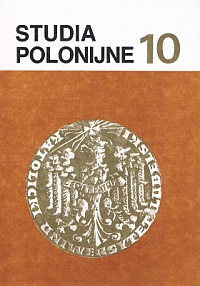Rola polskiego Kościoła rzymskokatolickiego w życiu Polonii węgierskiej
Main Article Content
Abstrakt
The article presents the role of the Polish Roman-Catholic Church in Budapest.
There were a few waves of the Polish immigration to Hungary: seasonal or permanent financial immigration of the 19th century and a large flow of Poles looking for work in mining, metallurgy, building, brickmaking and brewery at the beginning of the 20th century. The majority of Polish workers settled in Budapest, in the district of Köbanya. Thier low economic, educational and cultural status as well as the lack of social leaders led to their gradual denationalization. Thus, the Catholic Church and some social organizations decided to do everything to stop the process. The ethnic church in Budapest and its subsidiary institutions turned out to be the fundamental institutions maintaining the Polish cultural heritage among the Polish families in Köbanya. The church consecration took place on December 14th, 1926. The Polish church of Our Lady of Perpetual Help was legally subordinated to the association called "The Polish Hospice in Köbanya".
The church, assisted by the Elizabethan Sisters from Poznań, constituted a support for numerous Polish organizations and groups. A small room in the Hospice became the centre of all the cultural and educational work. The Polish church covered nearly all aspects of the social and cultural life of Polonia in Budapest.
After the world war II the church played the same integrating role till 1951. Since then, however, it has been getting weaker. Today, it still functions a "Polish" though its rector is a Hungarian. Polonia still gathers in the church on great feast-days. Low its pastoral work in directed towards the Polish contract workers staying temporarily in Budapest. In 1958 all the cultural and educational work of the church was taken over by the Polish Cultural Association.

